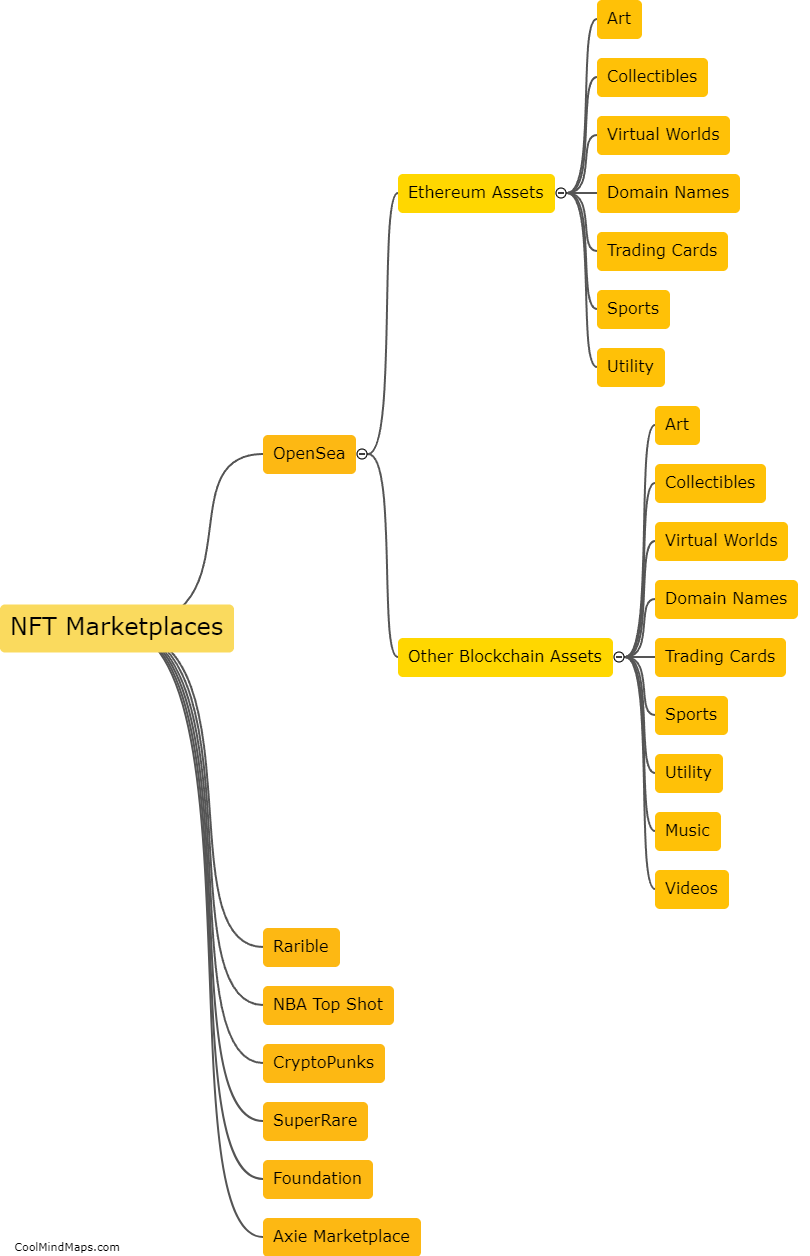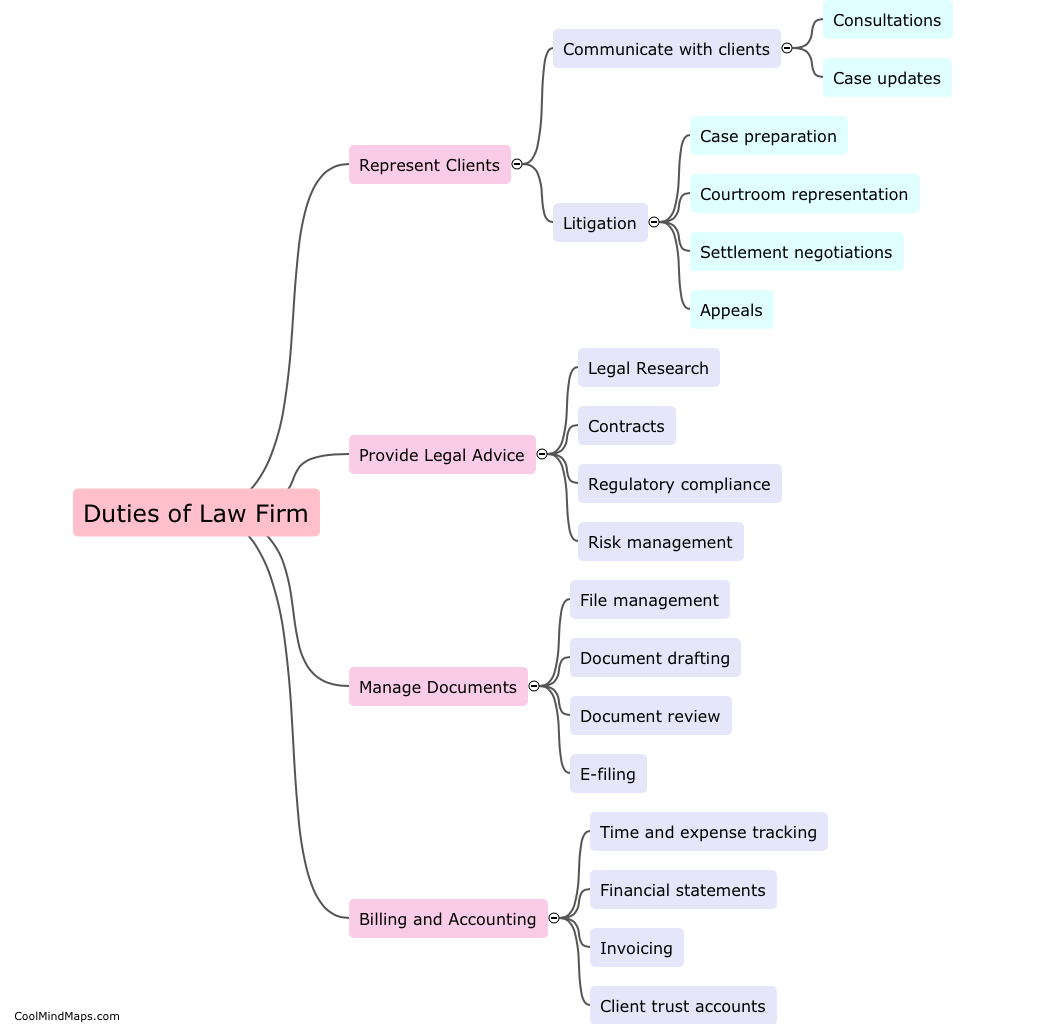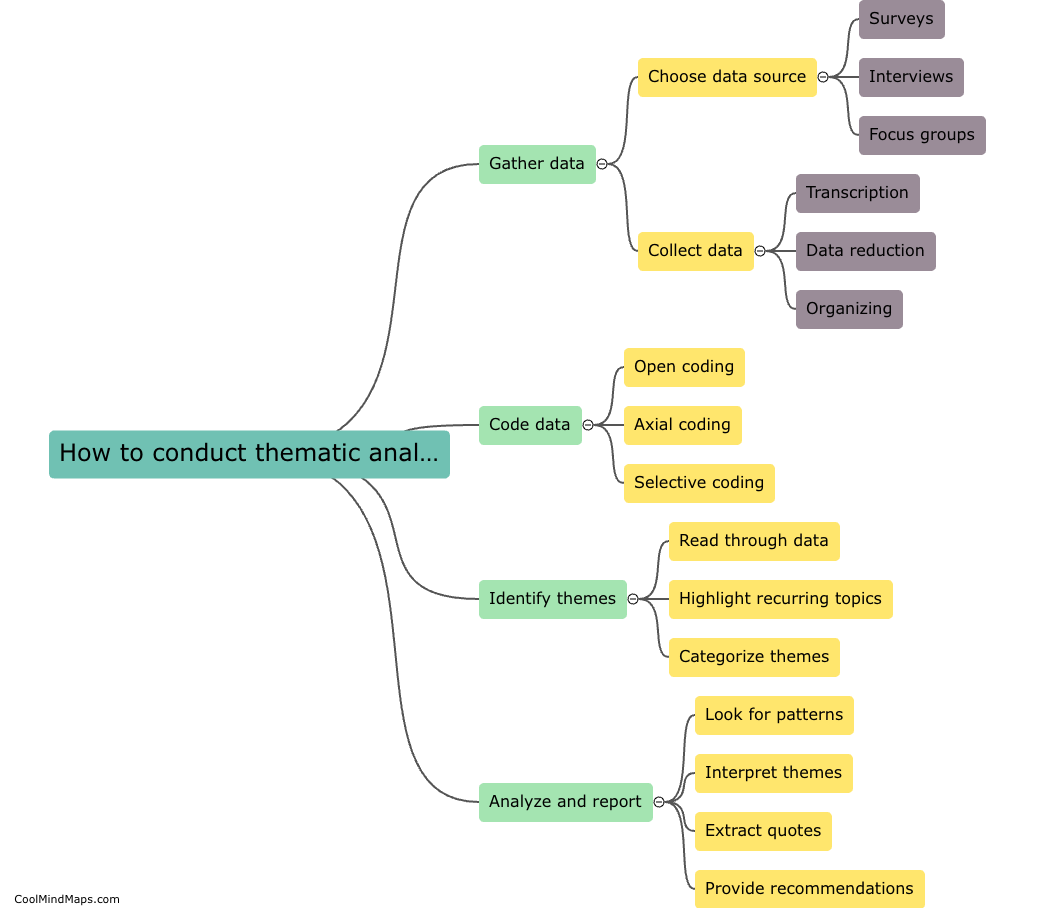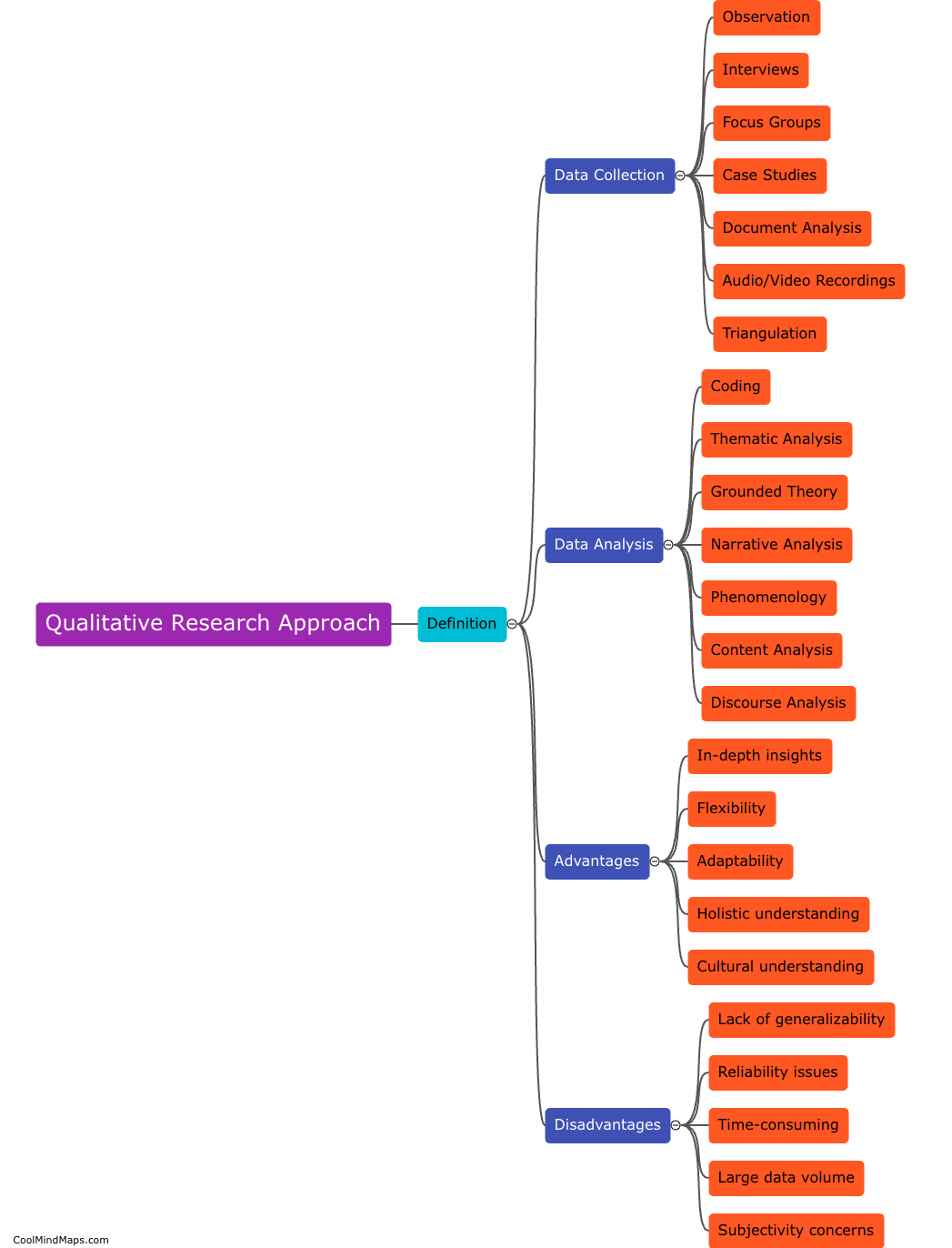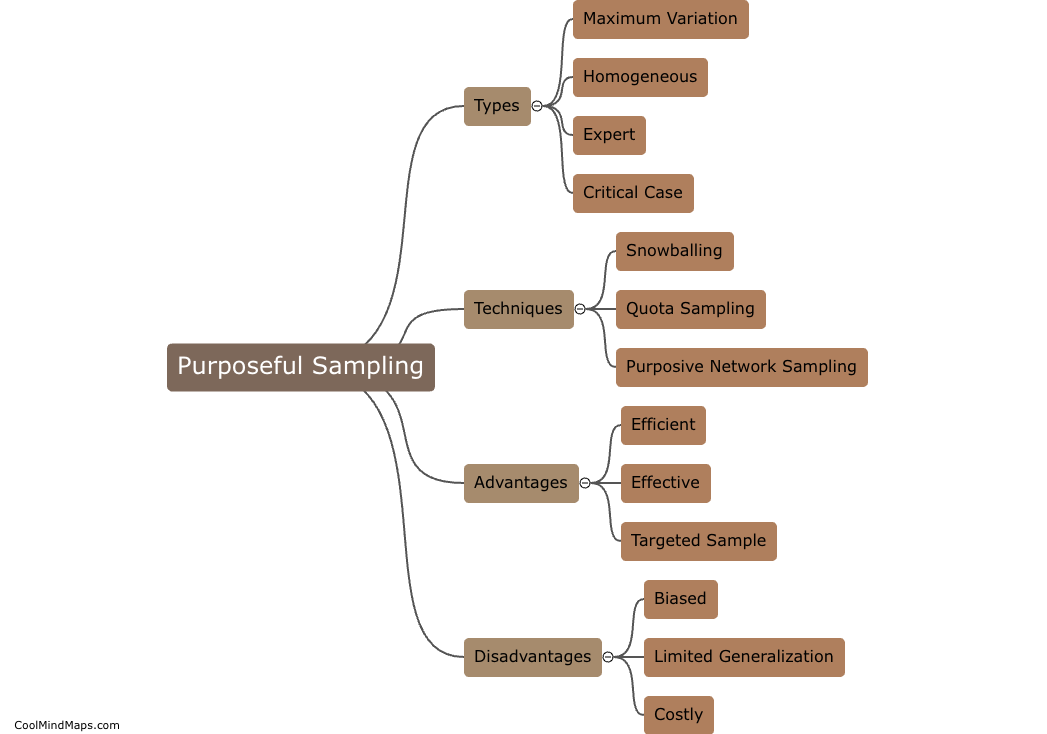What is theoretical sampling?
Theoretical sampling is a sampling method commonly used in qualitative research to select participants or sources of data that best fit the research question and the emerging theoretical framework. It involves selecting participants based on their relevance to the research question and their potential to provide new insights or perspectives that will inform the evolving theory. Theoretical sampling is an iterative process that involves ongoing data analysis and theoretical refinement, allowing the researcher to adjust the sampling criteria as new insights emerge. This method enhances the richness and depth of the data, as it allows researchers to gather more extensive, diverse, and in-depth information that addresses the nuances and complexities of the research question.

This mind map was published on 20 April 2023 and has been viewed 164 times.


